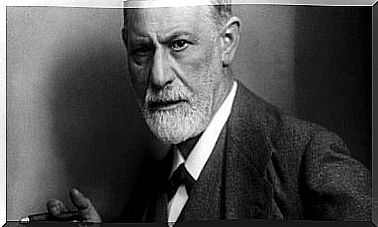How Language Modifies Thinking

We all control the way we speak. Clearly, through sheer experience, how something is said has a direct effect on the impressions and opinions of others. We have examples to support the hypothesis that language modifies thinking: marketing , political speeches, the media, and any form of expression that tries to have an effect on us.
But what does language have that can affect our perception? Who was the first to ask you? In this article you will find answers to this question so essential in any handling of impressions.
Sapir-Whorf linguistic determinism
The first person to consider how language modifies thought was Benjamin Whorf ; he postulated that the grammar and lexicon of a language determine the perception of the world. A fact that, in turn, endowed each linguistic community with common and specific behavior and cognition for its language.
In this way, it was stated that the way of thinking was restricted by language. For example, the Japanese term umami refers to a specific flavor derived from glutamate that does not have a direct translation in Western languages. According to the deterministic theory, a Western speaker would have serious trouble describing this flavor.

Language modifies thought, but does not chain it
The evidence contrary to this determinism forced Whorf to reformulate his theory, giving rise to what is known as the loose Sapir-Whorf theory. This theory replaces that we are slaves of our language by the idea of it that is capable of influencing our thinking.
This idea arises from the theories of language development by Noam Chomsky, who stated that the ability to understand and develop grammar was innate to the human being. Therefore, it would not be impossible to understand concepts foreign to our language, but it has been shown that cognition and language go hand in hand. Next, you will be able to read some very curious examples.
Language and cognition
These two theories have recently been taken up by psycholinguists who have wanted to unravel the details of how language modifies thought. This, with the help of new ideas for designing experiments, has yielded surprising results.
Spanish vs. English. Whose fault is it?
Liability lawsuits are a fundamental part of thinking when it comes to assigning a culprit to certain facts. This was investigated in international legal contexts due to the differences found in trials depending on the country in which they were held.
Let’s take an example. To do this, imagine that someone drops an object from their hand and breaks when it hits the ground. In Spanish it would be said ” it fell to the ground ” and in English ” he / she dropped it to the ground ” – he threw it to the ground.
In English, the most appropriate way of saying it implies that the person is directly responsible for the fact that the object has been broken, but in Spanish there is a passive way that allows the subject of the sentence to be freed from guilt.
The Kuuk Thaayorre and their mental compass
This tribe of aborigines in northern Australia has a peculiar way of pointing. Instead of using words like “left” or “down”, which put the observer as a point of reference, they use the cardinal points. For example, they might say ‘my hand in the northwest hurts’ instead of my right hand.
How does this influence the cognition of this group? The spatial ability and orientation of a Kuuk Thaayorre are much more developed than those of language speakers using a relative reference point. In this tribe, one cannot speak adequately without continually orienting ourselves according to the cardinal points.
Greek, Chinese and English-speaking metaphors
Betty Birner, Professor of Linguistics and Cognitive Science at Northern Illinois University, wanted to compare the effects of these three languages on understanding metaphors:
- The Greeks use size metaphors to describe the duration of an event : for example, a year is greater than a day.
- Vertical metaphors are used in Mandarin Chinese : the previous month would be “the month above,” for example.
- English speakers describe time with horizontal metaphors: the next day would be “the day ahead or the next day” and the day before, “the day behind”.
They measured the cognitive performance of all three groups, encountering difficulties in English speakers when trying to understand size or vertical metaphors. However, once English speakers learned to talk about time using another orientation scale, their cognitive performance began to resemble that of Chinese and Greeks.

How language modifies gender thinking
In Spanish and in other Romance languages, the gender given to nouns is decisive for grammar and syntax, that is, it must be taken into account to form a sentence correctly. However, this dichotomy becomes more complicated as we explore other languages: some have no grammatical gender, others have as many as sixteen.
But, does this influence the perception of the world? In an experiment comparing German and Spanish descriptions of nouns, words related to masculinity and femininity were attributed to inanimate objects.
Let’s see an example: the word ‘key’ is masculine in German and feminine in Spanish. Well, the Germans described a key with words like “hard”, “heavy” and “useful”, while the Spanish used terms like “golden”, “small” and “adorable”.
In conclusion, we can say that when we delve into the cognitive roots of language, we find that our thinking is sensitive to a multitude of linguistic factors. In turn, this leaves us with an interesting final reflection: is there a more effective way to improve our understanding of other cultures than by communicating with them?









